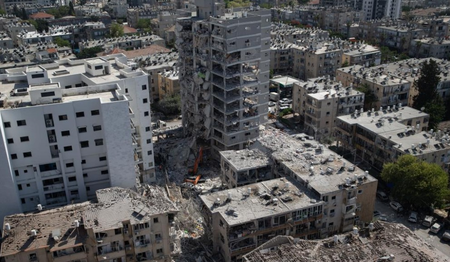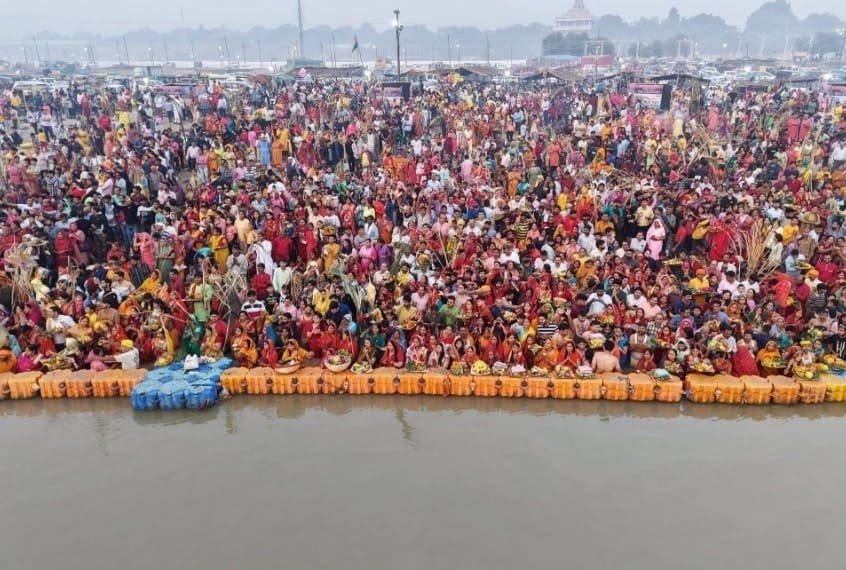
New Delhi, June 22 (IANS) As the world moves from one local war to another, it now seems so right that India stopped the battle with Pakistan at the perfect time.
Even though the decision came as a shock to Indians, as each wanted the neighbour to suffer more.
However, two months after the April 22 terror attack and the subsequent Operation Sindoor, the understanding for effecting a ceasefire was the perfect move towards the yet-to-come climax.
The ceasefire understanding is not an end, as India has stated firmly that Operation Sindoor has not ended, and any act of terror emanating from Pakistan will be treated as an act of war. The end is open, and all depends upon Pakistan’s conduct.
Given the situation created by the wars happening in other places, the pause is complementary.
Russia attacked Ukraine on February 24, 2022, and after three years, the two are still fighting. Several countries have tried to broker peace between the two, but every time the murmur happens, the two enter a virulent phase.
Nobody knows what the actual number of dead is in both countries, and nobody knows the extent of destruction. Wars are only about death and destruction, and the two have been facing both.
If Russia and Ukraine are hiding their pain, the war between Israel and Hamas is well televised and covered, with information flowing instantly. The conflict started on October 7, 2023, when Hamas and several other Palestinian militant groups launched coordinated armed incursions from the Gaza Strip into southern Israel. The barbarity of the attack shocked the world, and Israel rightly launched a counteroffensive. The counterattack has devastated Gaza and continues unabated, even as countries want Israel to stop.
However, the conflict has now added a new dimension, which is an attack on Iran. Israel launched the airstrikes on Iran on June 13, and each passing day is witnessing an increase in intensity, and now the US has also entered the scene.
The Israeli attack on Iran came unexpectedly as Iran-US talks were ongoing. Israel’s midnight attack shocked the Iranians, and the casualties were significant and striking. After the initial shock, Iran has been fighting back, causing huge losses to Israel.
With the US bombing three nuclear sites in Iran and threatening to attack more, the war scenario in the Middle East has completely changed. It can worsen, or Iran can just stop, which seems unlikely now. After US strikes, Iran again launched fresh missile attacks on Israel, and the latter also pounded back.
Prospects for an immediate end to the Israel-Iran-US conflict appear dim, with all sides in a belligerent attitude. Though European countries and some Muslim-majority countries are trying to get Iran and Israel to stop, things now seem to be difficult.
Thousands of people have been displaced, hundreds have died, and infrastructure in places has been badly affected in both Iran and Israel.
The war continues, and even if it is halted, it will be a long way from peace and difficult terrain for rehabilitation for those directly affected. Besides, the loss in the economy for Israel, Russia, Ukraine, Iran and all those involved in wars and battles is huge.
The lessons are stark, and India did right to halt Operation Sindoor. Wars are no longer about guns and powder. They have gone beyond and involve narrative setting and diplomacy dominance, with the former involving social media vibrancy.
India launched Operation Sindoor against terror targets on May 7 in response to the April 22 Pahalgam terror attack and struck deep in Pakistan on May 10 after it tried to terrorise with a barrage of drone and missile attacks.
Along with this, another fight was initiated, and this was of narrative and diplomacy. India did well in both, but on the internal front, the narrative was getting punctured as the Congress-led opposition has been consistently trying to demean the operation’s success and the political decision.
The statements of Congress leader Rahul Gandhi and his party leaders were lapped up by Pakistan, which has been using these to counter New Delhi’s claims.
The Congress party has also questioned India’s decision to halt Operation Sindoor and has attacked every action taken by the Centre, including diplomatic moves. It has even launched a social media campaign — “Narendra Surrender” — and is discrediting the Modi government for agreeing to a ceasefire understanding with Pakistan.
The Congress leaders have also slammed the Centre for its diplomatic stance — or perceived silence — on international crises, particularly the humanitarian fallout in Gaza and now in Iran.
Sonia Gandhi, former Congress president, penned an article criticising New Delhi’s silence as a “disturbing departure” from India’s moral and diplomatic traditions, urging stronger and more vocal leadership in West Asia.
However, such rhetoric, especially when echoed by adversaries like Pakistan, risks undermining India’s strategic credibility. In global diplomacy, every public statement is a signal — not just to the domestic electorate but to allies, adversaries, and neutral observers. Foreign policy should be navigated with caution and consensus, not caught in the crossfire of electoral combat.
India’s diplomatic posture has traditionally been subtle, working behind the scenes, avoiding knee-jerk reactions, and projecting calm strength. New Delhi’s diplomatic approach is often likened to the “duck policy”, calm on the surface but paddling hard underneath.
In a world ablaze with conflict, India’s choice to pause its military campaign was not an act of surrender — it was a reaffirmation of control. Operation Sindoor remains active in intent, and India’s military remains on alert. But wisdom lies not just in launching a war but in knowing when to stop.
The larger message is clear: restraint is not a sign of weakness; it is a sign of strategy.
(Deepika Bhan can be contacted at deepika.b@ians.in)
–IANS
dpb/sd/






